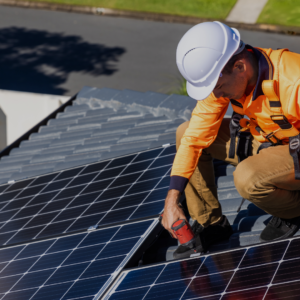 Although solar panels can provide significant financial, environmental and reputational benefits, they can present various risks and be susceptible to damage from several sources. As the popularity of them increases, commercial property owners should be aware of their benefits and disadvantages to make the best decision for their buildings.
Although solar panels can provide significant financial, environmental and reputational benefits, they can present various risks and be susceptible to damage from several sources. As the popularity of them increases, commercial property owners should be aware of their benefits and disadvantages to make the best decision for their buildings.
Installing solar panels on commercial rooftops can offer organisations several benefits, including electricity bill savings, tax incentives and improved sustainability credentials. They are also an alternative energy solution during power grid outages, reducing operational disruptions. Despite these notable benefits, there are several risks for businesses to assess, such as:
- Fire hazards and the risk of fires that produce toxins
- Susceptibility to weather- and animal-related damage
- Added weight that can have structural implications
- Decreased rooftop walking space, creating fall risks
- Attractive target for theft and vandalism
When weighing the pros and cons of rooftop solar panels, property owners should also consider the following measures to mitigate risks associated with them:
- Choose quality materials while appraising their combustibility and toxicity.
- Have a professional evaluate the rooftop to ensure it can handle the weight.
- Examine insulation materials to determine if they present additional fire risks.
- Hire certified installers to help ensure the systems are installed according to the manufacturer’s instructions and adhere to any applicable regulations.
- Take protective measures, including removing overhanging trees, installing animal guards and selecting solar panels to withstand severe weather.
Organisations should also review their insurance cover to ensure their policies include solar panels and associated risks. Contact us today for further information.